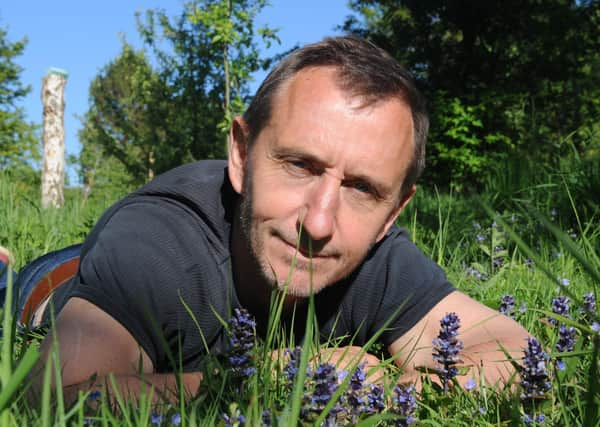Lewes District Council’s biodiversity strategy welcomed by biology expert, who says ‘we can all help’


The comments from Professor Dave Goulson came after councillors approved the strategy and action plan earlier this month.
Professor Goulson, Professor of Biology at Sussex University specialising in bumblebees, said: “While the climate crisis is well recognised, the biodiversity crisis gets less attention, yet it is just as big a threat to our future health and wellbeing.
Advertisement
Hide AdAdvertisement
Hide Ad“Hence I am delighted to see Lewes District Council’s new strategy to help biodiversity.
“We can all help by inviting wildlife into our gardens and urban greenspaces.”
The council’s strategy focuses on nature-based solutions and rewilding opportunities, increasing biodiversity on council land, enabling community-led and nature-based projects and maximising opportunities for gains in biodiversity on all new developments.
A 2017 German study, on which Professor Goulson was a co-author, concluded that there has been a 76 per cent drop in the numbers of flying insects between 1989 and 2016.
Advertisement
Hide AdAdvertisement
Hide AdCouncillor Matthew Bird, Cabinet Member for Sustainability, said: “Professor Goulson has been brilliantly making the case for change for many years - the statistics are stark, they speak for themselves, we must all act now to address the serious declines in biodiversity that have been taking place nationally and in our district.
“The climate and ecological emergencies are fundamentally linked and we are clear that they need to be tackled as a priority by ourselves, our partners and our communities.
“Since taking control of the council in 2019 we have launched a pollinator strategy and pesticide reduction policy, a climate change and sustainability strategy and today our biodiversity strategy.
“And most excitingly of all, alongside all these key documents we have been racing ahead with our partners delivering so many incredibly important projects that underpin our determination to become fully climate resilient and be carbon net zero by 2030.”
Advertisement
Hide AdAdvertisement
Hide AdBiodiverse landscapes are accepted as providing greater carbon storage, enhanced ecosystems, space for recreation and wellbeing, benefits in food production and are better adapted to the challenges created by climate change.
One example of the council’s action on this front is the work it has been progressing with partners to deliver a wide range of natural flood management projects on the Ouse catchment and upper eastern Adur.
Councillor Julie Carr, Cabinet Member for Waste and Recycling, said: “We will improve biodiversity right across the district by using a mix of approaches.
“When landscaped areas within existing sites are renewed or renovated, pollinator friendly plants that are grown in peat free soils will be used in any new scheme as a first choice.
Advertisement
Hide AdAdvertisement
Hide Ad“And in the centre of Lewes town, Grange Gardens will become a haven for hedgehogs by creating hibernation habitats, alongside the careful use of machinery when tending the flower beds and other vegetation.”
View Lewes District Council’s Biodiversity Strategy and Action Plan 2021 – 2025 in full at www.lewes-eastbourne.gov.uk